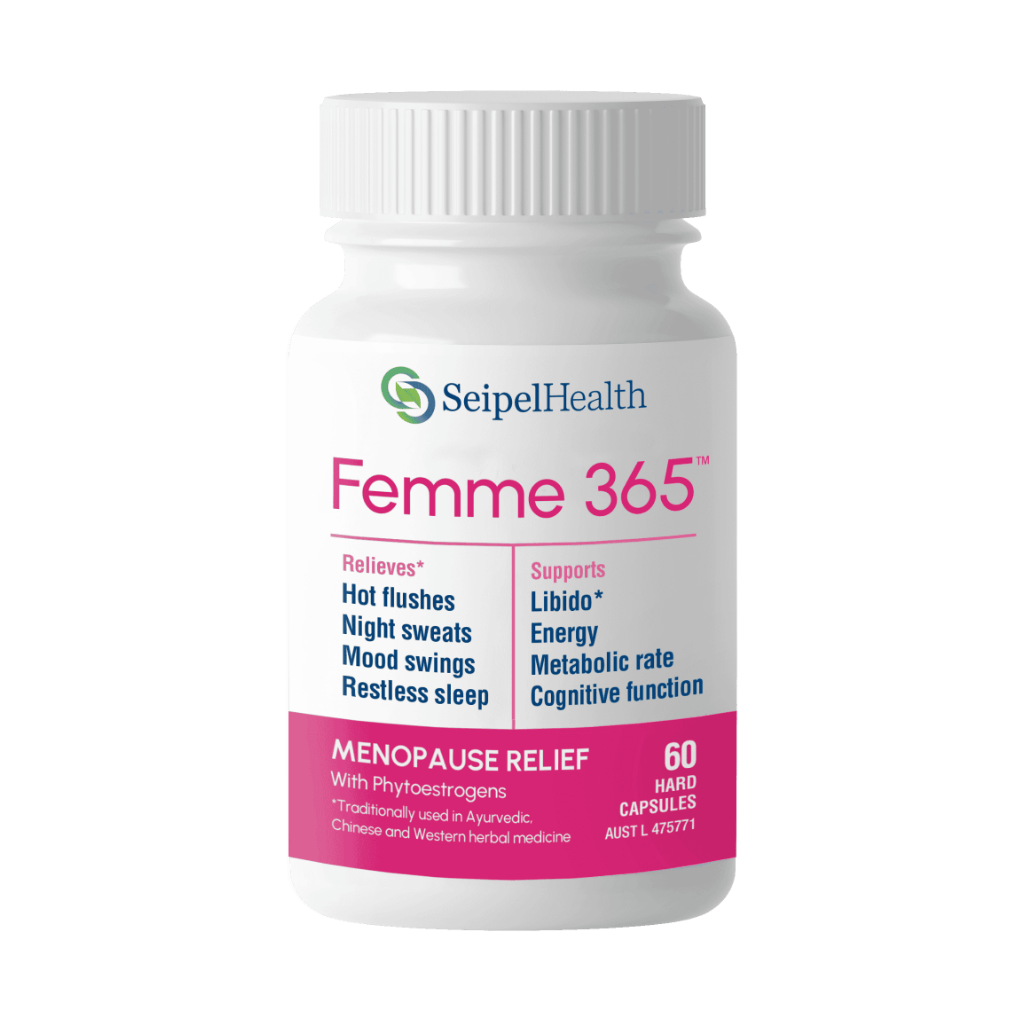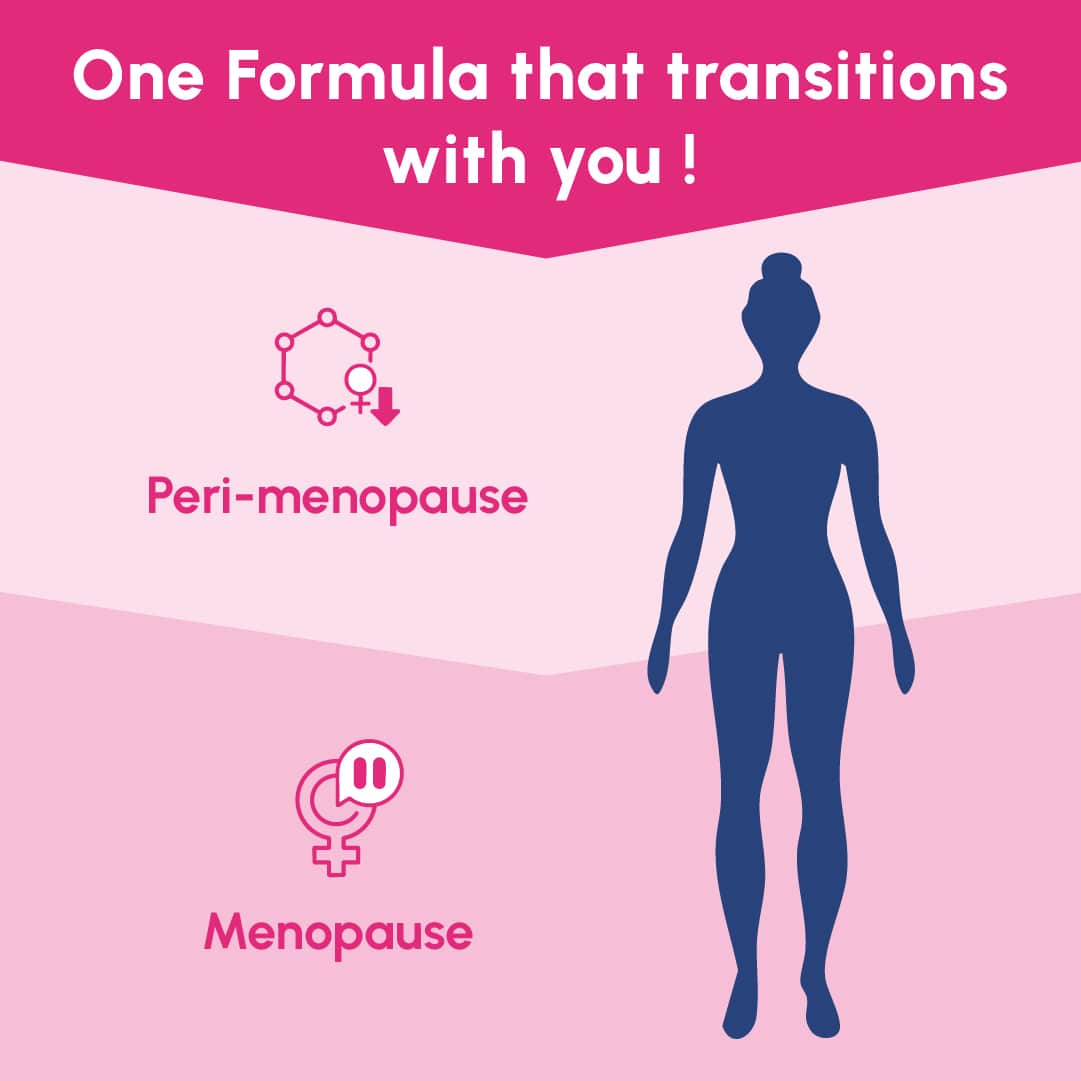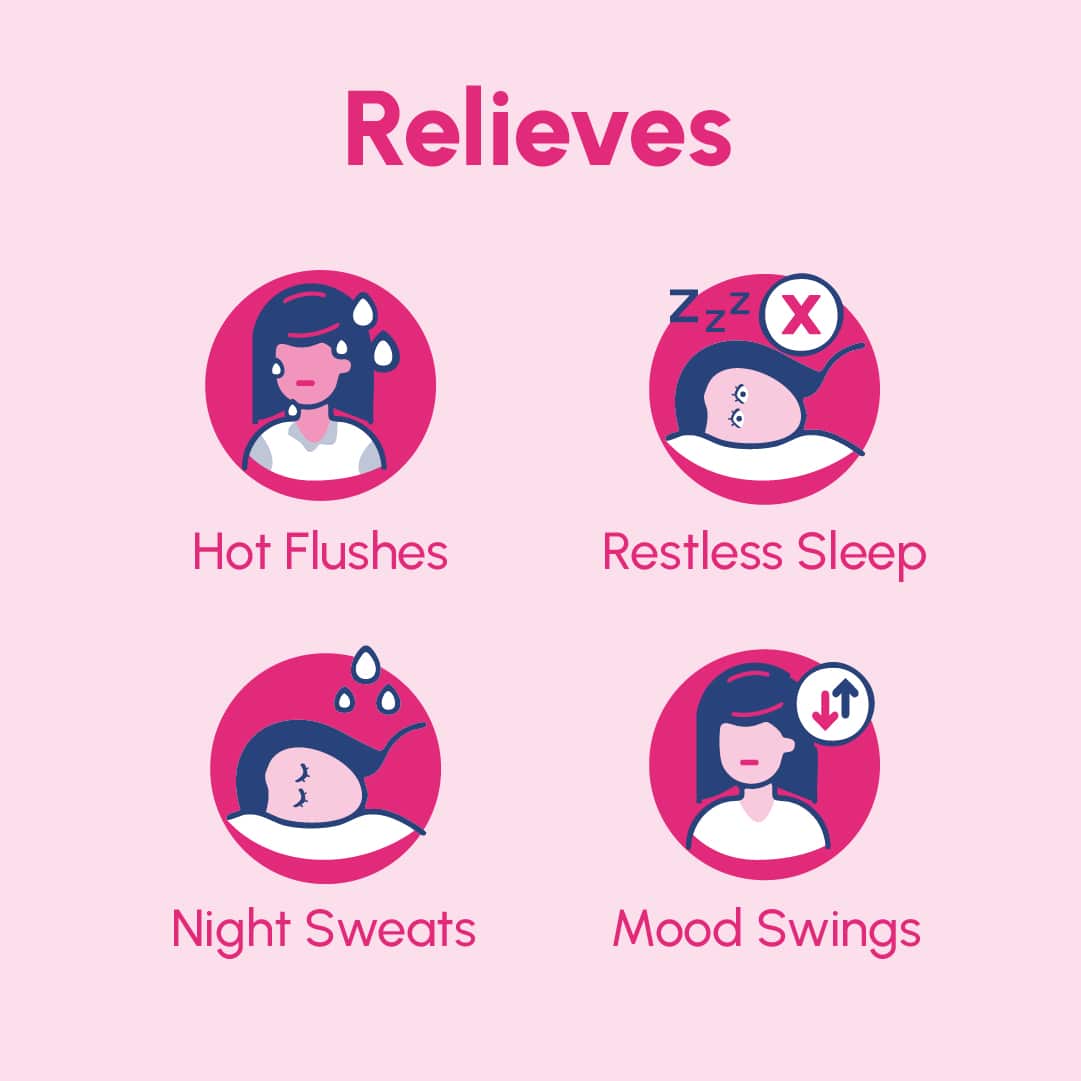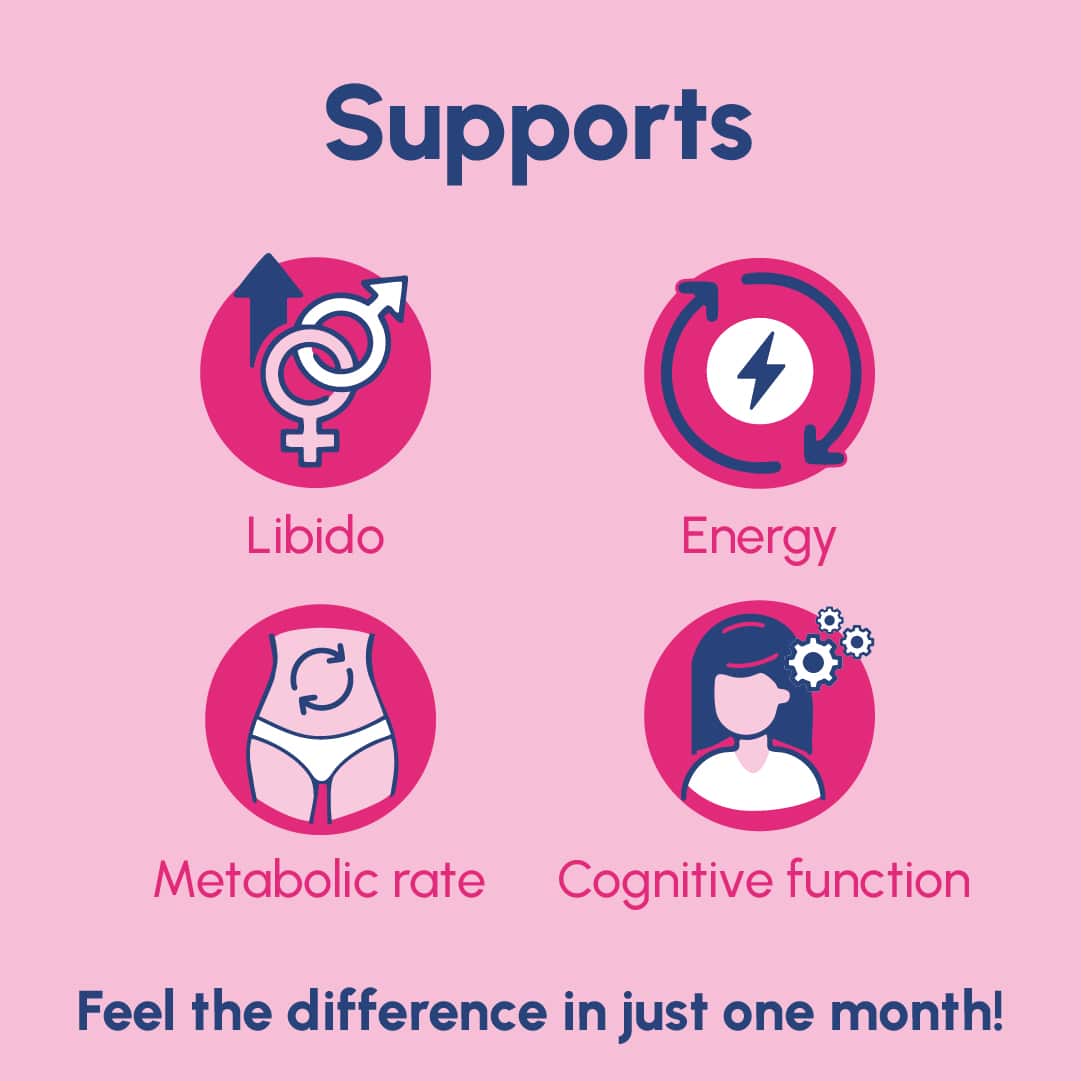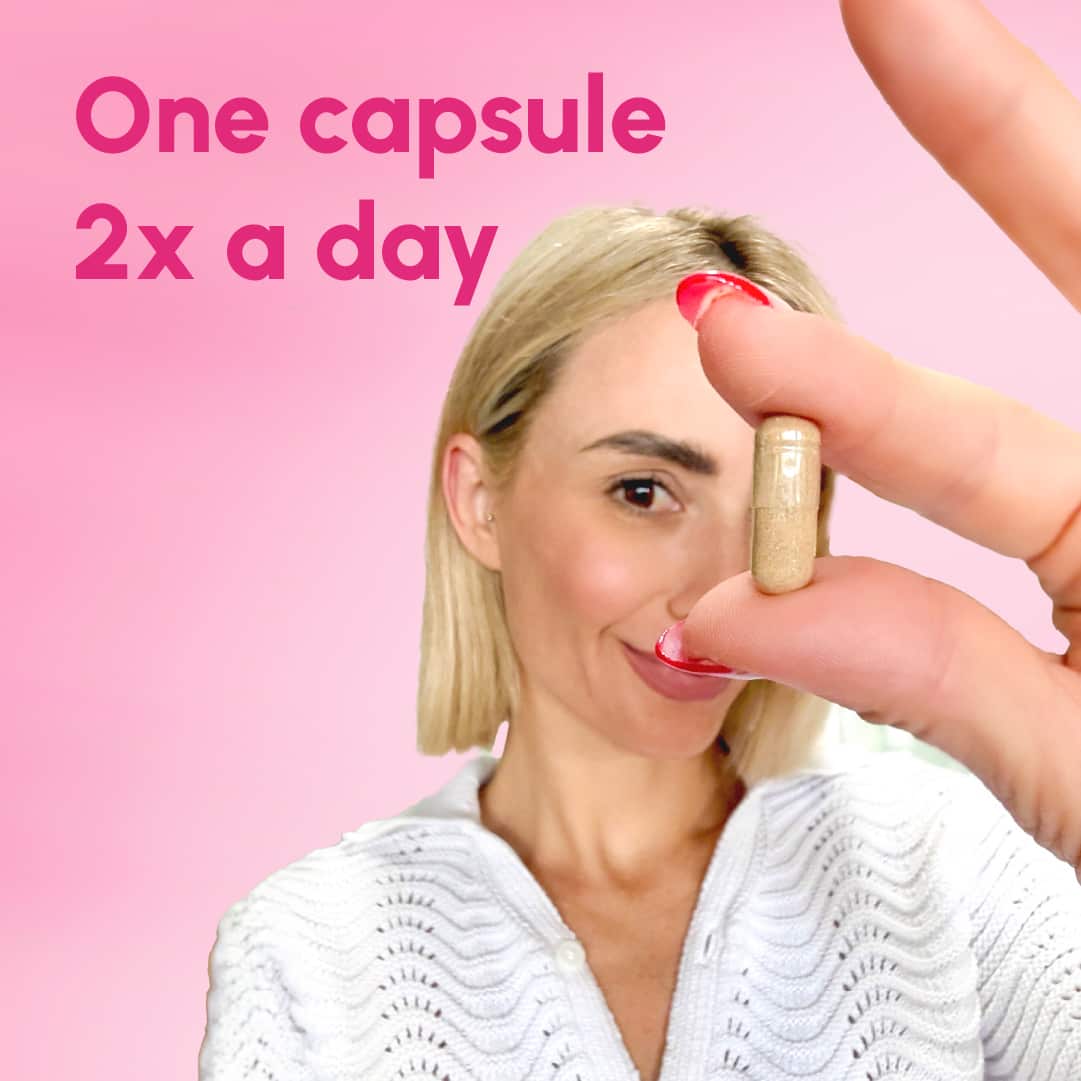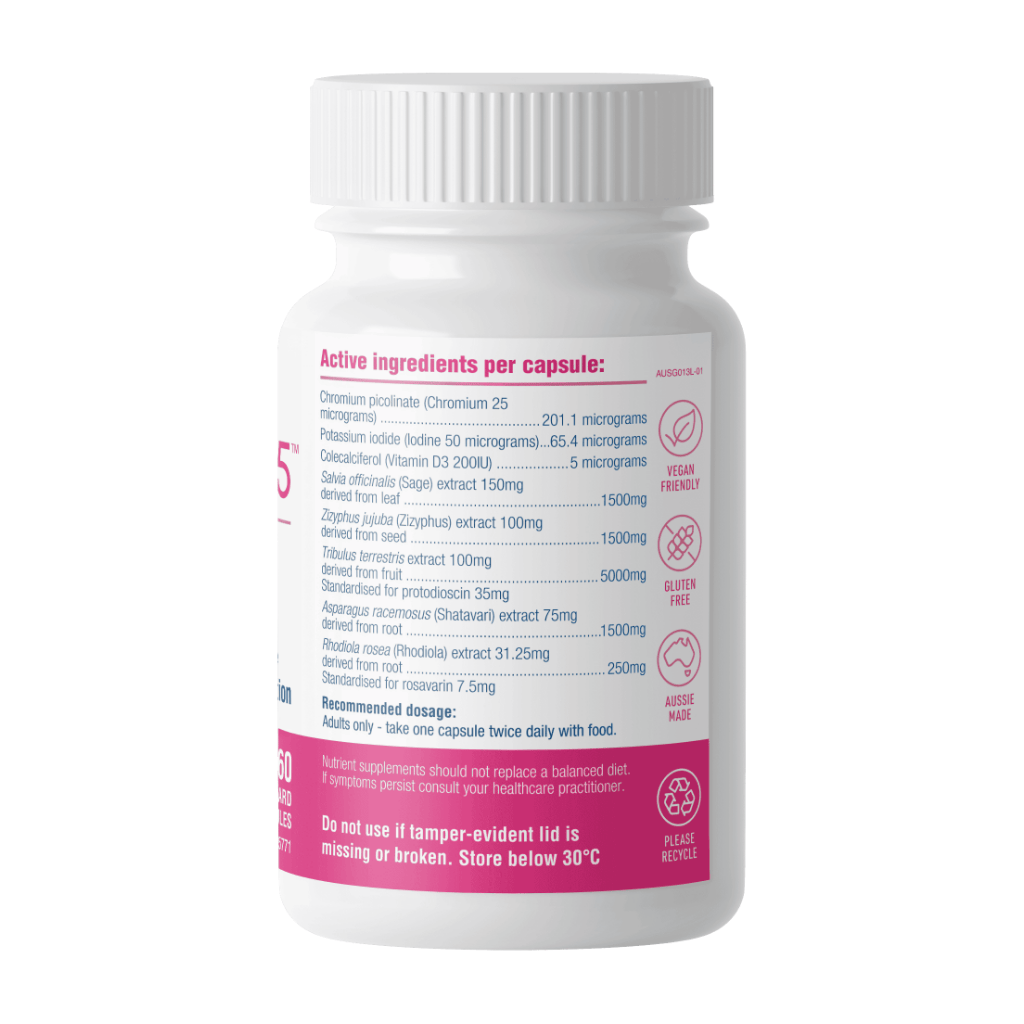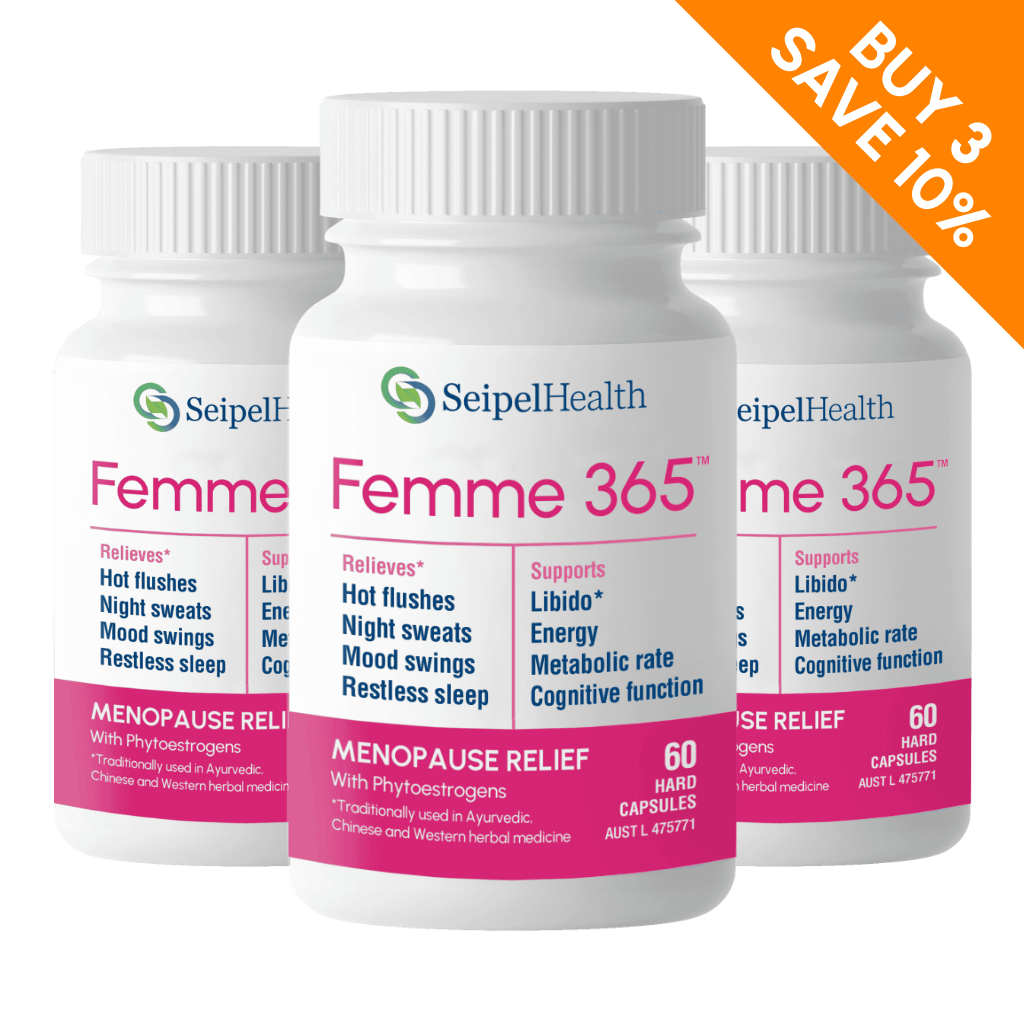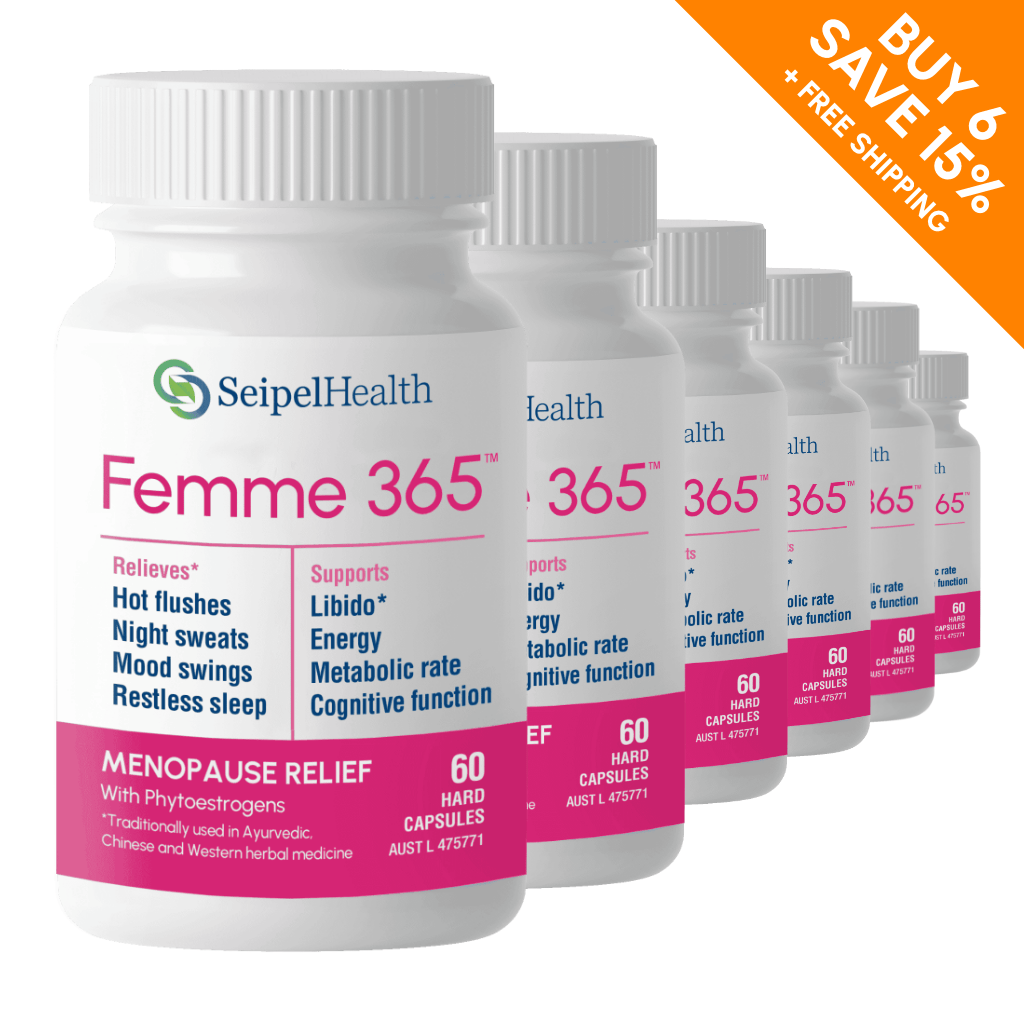Nourishing Your Body Through Menopause: Nutrients, Diet, and Lifestyle Tips
Menopause is a natural transition, often bringing unique challenges like fatigue, reduced bone density, shifting metabolism, and thyroid fluctuations. These changes can leave you feeling out of balance. However, the right nutrients, diet, and lifestyle choices can support your body and mind to feel your best.
Key Nutrients for Menopause
During menopause, nutrient needs shift. Femme 365 combines essential vitamins and minerals to ease this transition and support everyday wellbeing:
-
Vitamin D3: Estrogen decline reduces bone density. D3 supports strong bones by helping calcium absorption. It also aids immunity and mood.
-
Iodine: Thyroid fluctuations are common. Iodine is essential for thyroid hormone production, supporting steady metabolism and vitality.
-
Chromium: Hormonal changes can affect blood sugar regulation. Chromium helps stabilise blood sugar and supports a healthy metabolism.
Coupled with carefully selected herbal ingredients, these nutrients work synergistically to provide holistic support for your body’s changing needs.
Disclaimer
Nutrient supplements should not replace a balanced diet. If symptoms persist consult healthcare practitioner. Adults Only.
Lifestyle Recommendations: Move Your Body Outdoors

Aim for 15–20 minutes outdoors each day. This gives your body the sunlight it needs to support Vitamin D3, while also boosting mood and reducing stress. Pair this with simple weight-bearing activities — walking, climbing stairs, or light strength training — to keep bones strong and energy flowing.
Simply moving your body, whether it is walking, gardening, or stretching, counts as physical activity. When you take that movement outdoors, you get a double benefit: the exercise itself plus natural sunlight, which helps your body make vitamin D. Even a gentle daily walk in a park or open space can do wonders for your bones, mood, and overall health (4).
Dietary Recommendations: What you eat plays a key role in supporting your body through menopause. Here are some nutrient-rich foods to consider (5):
Include more of these:
🌿 Phytoestrogens: Linseeds (flaxseeds), sunflower seeds, sesame seeds, chickpeas, lentils, rye bread, soy foods. Gently mimic estrogen; may help ease symptoms like hot flushes and bone loss.
🦴 Calcium: Dairy or fortified plant milks, almonds, leafy greens (e.g., kale), tahini. Essential for strong bone health.
💪 Protein: Lean meats, legumes, nuts, seeds. Supports muscle strength and provides steady energy.
✨ Magnesium: Pumpkin seeds, spinach, dark chocolate. Supports sleep, mood, and bone health.
🌈 Antioxidants: Colourful fruit and vegetables (a wide variety). Supports skin, circulation, and immunity.
Reduce or avoid where possible:
-
Caffeine: can worsen hot flushes, sleep issues, and anxiety.
-
Refined sugars: contribute to blood sugar crashes and mood swings.
-
Spicy foods: may trigger or intensify hot flushes in some women.
-
Highly processed foods: often low in nutrients and high in unhealthy fats/salt.
Flexibility is key — the goal is balance, not perfection.
Want a simple, menopause-friendly meal plan for one full day?
Download our free One-Day Menopause Meal Plan packed with phytoestrogens, protein, healthy fats, and nutrient-rich foods to support bones, hormone balance, and steady energy.
When herbs and nutrients work together with healthy lifestyle habits, you offer your body truly holistic support. Femme 365 is designed to provide this balance, helping your body and mind work in harmony through the menopausal transition.
Menopause is not an end, but a natural transition — and with the right knowledge, nutrition, and support, you can thrive in this new chapter of life.
References
-
Mei, Z., Hu, H., Zou, Y., & Li, D. (2023). The role of vitamin D in menopausal women's health. Frontiers in physiology, 14, 1211896. https://doi.org/10.3389/fphys.2023.1211896
-
del Ghianda, S., Tonacchera, M., & Vitti, P. (2014). Thyroid and menopause. Climacteric : the journal of the International Menopause Society, 17(3), 225–234. https://doi.org/10.3109/13697137.2013.838554
-
Braun, L., & Cohen, M. (2015). Herbs & natural supplements: An evidence-based guide. Volume 2 (4th ed.). Elsevier.
-
Fernandes, M. R., & Barreto, W. D. R., Junior (2017). Association between physical activity and vitamin D: A narrative literature review. Revista da Associacao Medica Brasileira (1992), 63(6), 550–556. https://doi.org/10.1590/1806-9282.63.06.550
-
Hechtman, L. (2019). Chapter 18: The female reproductive system. In L. Hechtman (Ed.). Clinical Naturopathic Medicine (2nd ed.). Elsevier.



